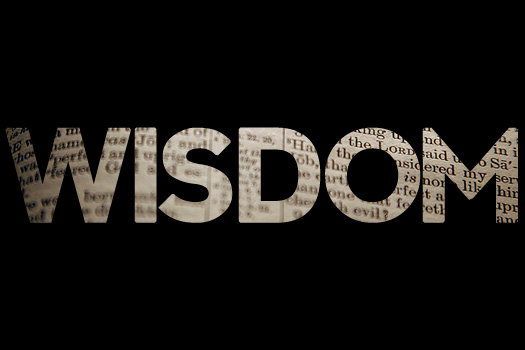
There is an old and frequently quoted adage that says: “With age comes wisdom.” It needs to be stated right at the outset that such a view shows no wisdom! Oscar Wilde had an amusing take on it: “With age comes wisdom, but sometimes age comes alone.”
By Tim Middleton
Wisdom does not necessarily come with age nor does it come automatically with age – we only need to see how there are plenty of old people who lack wisdom while there are plenty of young people who have wisdom. In following this adage, we may be more accurate if we say that “with age comes the ability to lie, to cheat, to bully”.
Some people seek to differentiate between being wise and being “street-wise”. Street-wise has been defined as “having the shrewd awareness, experience, and resourcefulness needed for survival in a difficult, often dangerous urban environment.” Being street-wise may be useful but a tiny modicum of wisdom would show that we are not meant to live on the street – survival is not what it is about. Wisdom is. The million dollar question, however, is this: how do we acquire wisdom?
A long time ago, Confucius gave his answer to that question: “By three methods we may learn wisdom: first, by reflection, which is noblest; second, by imitation, which is easiest; and third by experience, which is the bitterest.” Others would agree with him regarding experience, offering amusing and witty thoughts. Oscar Wilde, quoted earlier, reflected that “Experience is the name everyone gives to mistakes”, a point echoed by Franklin P Jones: “Experience is that marvellous thing that enables you to recognise a mistake when you make it again.” Pete Seegar added his voice by commenting that “education is when you read the fine print: experience is what you get if you don’t” while Vernon S Law laments that “Experience is the worst teacher; it gives the test before presenting the lesson.” Oprah Winfrey would perhaps have agreed when she cried: “Turn your wounds into wisdom”. However, the bottom line is this: experience can only teach so much and often teaches the wrong things. We stumble upon wisdom by experience, rather than gain it.
There are numerous articles on the internet giving advice on how to get wisdom, but there is a very simple solution and it is not reflection or imitation, good as they are. The easiest and shortest route to wisdom is through humility – as a wise man said, “humility comes before wisdom”. You will not find a wise person who is arrogant or self-centred. So wisdom comes when we know, and will admit, that we do not know everything; Lao Tzu wrote that “he who knows others is smart – but he who knows himself is wise.” Wisdom comes when we can differentiate between those things that we define as our needs and those that we classify as our desires. It is about learning what is important as opposed to what is impressive. All this comes from humility.
Wisdom comes when we do not take everything at face value, when we realise that not all that we see is real. We need to cut through all the greed, selfish ambition and meaningless protocol, to know the real state of heart and mind; we need to ignore all the posturing, clapping and ululating that may come our way. We need to understand the motives, intentions and interests of those around us, without judging them for being different or diffident. We need to see the Big Picture, not simply our own world, and see how we can contribute to it, not least as the Big Picture will affect us. All this comes from humility.
Experience is not enough to gain wisdom: as a Chinese proverb says, “experience is a comb which nature gives to men when they are bald.” Experience can help us, especially the experience of failing, not least as failing can serve to humble us, but it is not enough. Humility is the key; it is one of the key values for a person to be man of value. Contrary to what the world might suggest, only a truly humble person is a confident person – she does not need to impose her thoughts, ideas, desires or qualifications out there. She does not need to promote herself.
- Chamisa under fire over US$120K donation
- Mavhunga puts DeMbare into Chibuku quarterfinals
- Pension funds bet on Cabora Bassa oilfields
- Councils defy govt fire tender directive
Keep Reading
So, how much are we teaching our children to be wise, to be humble? Or are we teaching them simply to be street-wise, to beat the system, to handle the “rat race”, to go under the radar? There is a big difference between being street-wise and wise, and between the benefits of both. Equally, being witty is not being wise. But it will take a wise person to understand all of that.
Tim Middleton is the executive director of the Association of Trust Schools and author of the book on “failure” called Failing to Win.
email: [email protected]
website: www.atschisz.co.zw











